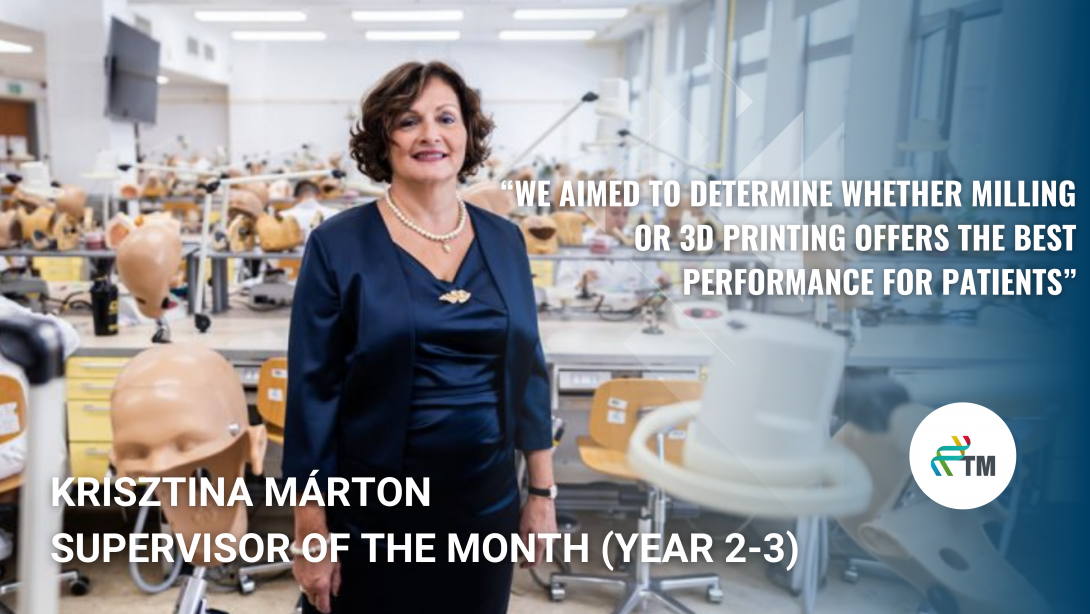
She has two Ph.D. students at CTM, one of whom has recently published a research in the D1 journal Dental Materials, and the other is also making good progress with her research. In February, Prof. Dr. Krisztina Márton was named Supervisor of the Month (Year 2/3) at the Centre for Translational Medicine.
Prof. Dr. Krisztina Márton is the Head of the Department of Preclinical Dentistry at Semmelweis University, she joined the CTM Ph.D. program as a supervisor two years ago. Her first student is Zsófia Éva Vincze, who is also her resident. „Zsófia started working with 3D printing technology when she joined our department, and she was soon involved in academic work. She participated in a project in which we wanted to find out whether dental models made with 3D printing lose dimensional stability over time. After that, the idea came up that Zsófia should join the CTM Ph.D. training and continue the academic work there.”
In the first project of her Ph.D. studies, Zsófia compared different PMMA (polymethyl methacrylate) complete denture base manufacturing techniques by evaluating their mechanical properties. She was interested in flexural strength, flexural modulus, surface roughness, impact strength, and Vickers hardness. „These properties are very important. For example, the flexural strength has an impact on how fragile the baseplate of the prosthesis is. Surface properties are also important for patients. Therefore our aim with the research on these properties was to determine whether compression moulding, injection moulding, milling, or 3D printing offers the best performance for patients.”
Dr Vincze's research was recently published in the D1 journal Dental Materials. Its results have shown that milling is the best method, both in terms of flexural strength, modulus and surface roughness. In contrast, 3D-printed denture bases demonstrate the lowest mechanical performance, highlighting the limitations of this technique at present. „We will continue and expand this research. For example, we want to investigate the surface roughness of different denture bases. This knowledge is important because it is known that smoother surfaces can reduce plaque retention and microbial-induced inflammation of the oral mucosa.”
Prof. Dr. Krisztina Márton has another Ph.D. student at CTM, Ágnes Heizer, who is in her first year. She is investigating the prevalence of oral disorders in Sjögren's syndrome. This is an important question because oral dryness is a serious problem in this autoimmune disease, and increases the risk of many dental problems. These topics are close to Dr. Máton’s heart because two of her main research topics are oral dryness and autoimmune diseases related to it. These topics had already been researched by two of her former Ph.D. students. One investigated the relationship between smoking and oral dryness, while the other studied the prevalence of Sjögren's syndrome in Hungary. She currently has a Ph.D. student at her department who is studying the effects of drugs on oral dryness, and one who is researching the possible viral background of Sjögren's syndrome. She also has a student researching the relationship between nutrition and oral dryness.
(Szabó Emese)